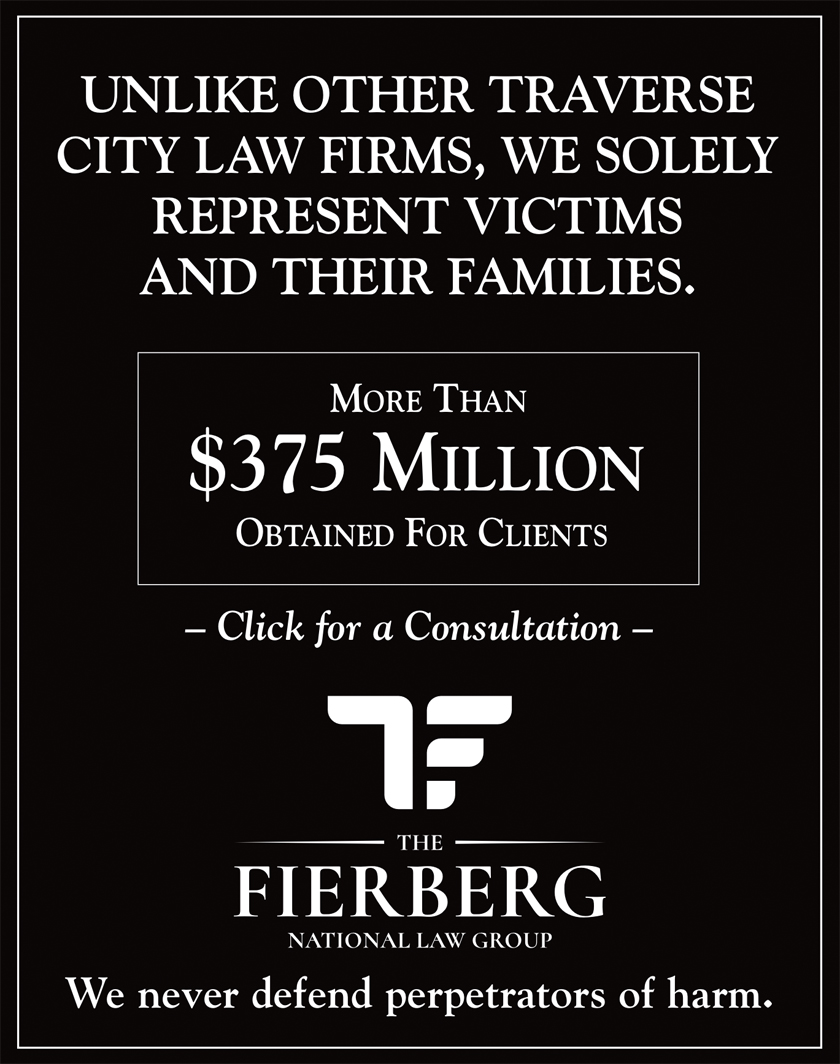
TCAPS Hires Firm To Complete Security Assessment Of All District Schools
By Beth Milligan | July 15, 2022
Traverse City Area Public Schools (TCAPS) board members voted unanimously Thursday to hire a security firm led by a former U.S. Secret Service special agent to complete a security assessment of all 16 district schools, as well as other TCAPS buildings, athletic facilities, and safety policies and procedures. Funding for the $32,000 contract is expected to be covered by the state, with Governor Gretchen Whitmer recently signing a bipartisan bill committing $2,000 for every public and private school in Michigan to receive a safety and security assessment following the Oxford High School shooting.
Founder and President Jason Russell of Secure Education Consultants (SEC) gave a presentation to TCAPS trustees Thursday on his company and the proposed districtwide safety assessment SEC would provide. Russell founded the company in 2012 after working in the U.S. Secret Service and now contracts with approximately 80-90 school districts across Michigan and hundreds of districts across the U.S., he said. SEC recently completed an analysis of Oxford’s safety protocols after the shooting at that school and works to provide districts with a “holistic 360-degree assessment,” according to Russell.
“Security happens in layers,” he said, explaining that the firm would evaluate not only physical security measures at each school but staff training, processes, and the degree to which safety equipment is being correctly used and procedures properly followed. “The mistakes in emergencies are generally not in the big stuff,” he said. “They’re in the small details.” Russell said SEC works to “close the gap” between perception – how safe people feel within a school district – and reality, or how effective the district’s security measures actually are. “Our approach is a little bit more reasonable and common sense,” he said. “You can’t turn a school into a prison…but you also want safety and security to operate.”
TCAPS Board Treasurer Andrew Raymond asked Russell whether SEC looks at procedures for handling red flags when students exhibit troubling behavior, noting that many school shootings – including Oxford – involved early behavioral warning signs. Russell confirmed yes, saying that behavioral threat assessments are a key part of his background and are included in district assessments. “That is a big piece of what we do,” he said. SEC will also interview stakeholders, observe schools while in session, assess the district’s relationship with local law enforcement agencies, and review the district’s crisis management plan to ensure best practices are in place if an emergency does occur, he said.
Board President Scott Newman-Bale questioned how SEC would present its findings in a way that would reassure the district and families that school safety had been thoroughly assessed without publicly identifying vulnerabilities that could be exploited. “You certainly never want to point out your weaknesses,” Russell agreed. After completing the districtwide assessment – tentatively slated to take place with a full SEC team over the course of several days in September – Russell said he would present a report to the board, a portion of which would be reviewed in public and a portion of which would be reviewed in closed session with trustees. He said SEC would work collaboratively with TCAPS to ensure the report’s final recommendations are realistic and implementable for the district. Russell also emphasized that SEC doesn’t sell security products, nor does it accept referral fees from any companies that sell security products. “Assessors should never recommend something they have a financial stake in,” he said. “When we recommend a thing, it’s merely because it is the best thing. I think that’s an important piece.”
After trustees unanimously voted to approve the $32,000 contract with SEC, TCAPS Superintendent Dr. John VanWagoner noted that he and district staff are working on other safety measures in the interim ahead of the security assessment this fall. VanWagoner said all exterior doors have been tested on secondary schools to ensure they properly close and lock, with any doors in disrepair flagged to be immediately fixed if possible or closed off from the interior until they can be improved or replaced. An assessment of all elementary exterior doors will follow in August before school resumes. “We’re still going to do absolutely everything we can with the time and resources (we have)…while we wait for that (SEC) assessment,” VanWagoner said.
TCAPS has also posted a job listing to hire a school safety and security coordinator, a dedicated person who will serve as the district’s point person for safety and security. VanWagoner said the district has already received a number of applications for the role and will begin evaluating candidates next week. He said TCAPS could possibly qualify for state funding for part of the position’s cost if some of the hire’s hours are spent as a school resource officer, with Michigan bulking up funding for that specific position. But VanWagoner said TCAPS would move ahead with filling the role regardless of whether or not state funding comes through for the position.
Newman-Bale also reminded trustees and the public Thursday that TCAPS has two different “modes” it can enter when there is a school safety concern, emphasizing the difference between the two in the likely event one or the other arises this coming school year. When there is an external risk – such as a suspicious person being spotted in a neighborhood, or a crime or safety incident occurring nearby – a school can go into “secure” mode. In this mode, school continues as usual, with students moving about freely inside but not allowed to go outside. “Lockdown,” meanwhile, is a more severe mode and can mean that there is an “imminent threat to the building,” VanWagoner said. In that mode, students stay put in classrooms until the threat has been cleared.
Newman-Bale said the distinction was important so that parents aren’t overly alarmed when “secure” mode occurs, which is typically more of a precautionary measure. “I would anticipate a few secure moments for sure (this school year),” he said. He also said he wanted to ensure principals felt comfortable making the call to go into secure mode without being worried they were overreacting, saying it was more important to be safe even if the external threat turned out to be a non-issue. VanWagoner agreed, saying schools should “always err on the side of caution.”
Comment






